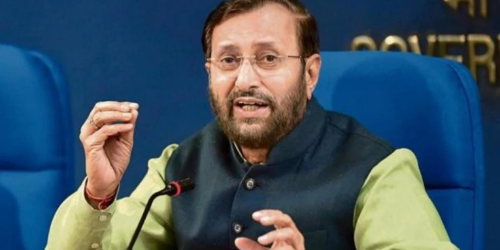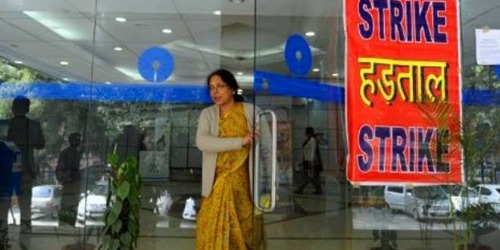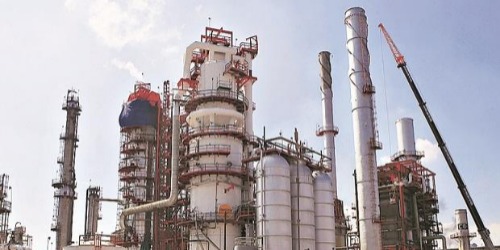Cabinet clears strategic disinvestment proposal for BHEL, Neelachal Ispat, MMTC, NMDC

The Union Cabinet on Wednesday cleared several proposals including strategic disinvestment of small PSUs and ratification of MoUs on energy sufficiency between India and the UK and promulgation of Mineral Laws.
"The Cabinet approved in-principle strategic disinvestment of equity shareholding in five small PSUs -- Neelachal Ispat Nigam Ltd, Minerals and Metals Trading Corporation Ltd, National Mineral Development Corp, MECON and Bharat Heavy Electrals Ltd," Union Minister Prakash Javadekar said during a press briefing.
Apart from that, the Cabinet also approved ratification of migration and mobility partnership agreement between India and France. The agreement, signed in March 2018 till 2025 -- incorporates provisions for auto-renewal.
An MoU between India and the United Kingdom was also approved for enabling energy self-sufficiency for the Indian Railways.
Besides, the Institution of National Importance (INI) status has also been conferred on the cluster of Ayurvedic institutions at the Gujarat Ayurveda University campus in Jamnagar.
The Cabinet also approved promulgation of Mineral Laws (Amendment) Ordinance, 2020. The Ordinance will amend Mines and Minerals (Development and Regulation) Act, 1957, and Coal Mines (Special Provisions) Act, 2015.
"The allocation of coal or lignite blocks for composite prospecting licence-cum-mining lease has been provided (under the licence)... the requirement of previous approval in cases where the allocation of blocks was made by the Central government has been dispensed with," a government statement said. This would speed up the process of implementation of projects, ease of doing business, simplification of procedure and benefit people in areas where minerals are located, it added.
- 0
- Leave a comment
Uber, Hyundai Motor team up to develop electric flying taxi

US ride-hailing company Uber Technologies and South Korean automaker Hyundai Motor plan to jointly develop electric air taxis, they said on Tuesday, joining the race for flying cars to ease urban congestion.
Hyundai will unveil a concept electric aircraft developed with Uber at the Consumer Electronics Show (CES), which kicks off in Las Vegas later in the day, with the model designed to carry up to four passengers with a pilot and fly on trips of up to 60 miles (100 km).
Uber has pledged to begin demonstrator urban flights in 2020 and commercial operations in 2023 as part of its project, which also counts Boeing subsidiary Aurora Flight Sciences as one of its partner firms. Hyundai is the first carmaker to team up with Uber on the project.
"Hyundai will produce and deploy the air vehicles, and Uber will provide airspace support services, connections to ground transportation, and customer interfaces through an aerial ride share network," the two companies said in a joint statement.
"The overall cost to produce and operate UAM (urban air mobility) vehicles should be really low enough for everyone to enjoy the freedom to fly," Shin Jai-won, Executive Vice President and Head of Urban Air Mobility Division at Hyundai Motor, said at a CES presentation.
Shin, a former NASA engineer hired by Hyundai last year, said the mobility industry believes that once the everyday flight market matures fully, it will exceed the current number of commercial airplanes flying around the world - about 25,000.
Last year, Hyundai pledged to invest 1.8 trillion won (1.1 billion pounds) in what it called "urban air mobility" by 2025.
Hyundai will continue to collaborate with industry leaders on future projects, Euisun Chung, Executive Vice Chairman of the group said at the presentation.
Plane makers, car manufacturers and technology firms are jumping into the flying car segment, although significant technological and regulatory hurdles remain to be addressed.
US planemaker Boeing said in October it was working with Volkswagen's sports car brand, Porsche, to develop a concept electric flying vehicle capable of transporting people in urban areas.
EPFO may cut interest rates in Jan; salaried employees to earn lower returns

The Employees' Provident Fund Oragnisation (EPFO) might reduce its interest rate leading to lower returns for millions of salaried people. The EPFO might reduce the interest rate to its subscribers by 15-25 basis points for this financial year.
Millions of salaried people are required to mandatorily invest in the EPFO. They would earn lower returns for the financial year ending March 31, 2020. EPFO was offering subscribers an interest of 8.65 per cent in 2018-19.
According to a report, the decision, two government officials said, comes amid economic slowdown, lower yields for debt market instruments and lower interest rates on similar products including public provident fund and government provident fund.
The report said that the announcement on annual interest rate is likely to come by the end of the month.
The EPF payout is impacted by 55 to 70 basis points in case interest rates in the market falls a 100 basis point. It is therefore likely that the EPFO would find it difficult to offer 8.65 per cent interest this financial year. The EPFO invests 85 per cent of its annual accruals in debt market and 15 per cent in equities through exchange-traded funds, as mentioned in the report. "Thus, a 15-25 basis point cut in EPF interest rate this fiscal should not come as a surprise," said an official to the daily.
The EPFO was left with a surplus of Rs 151 crore in 2018-19 after an 8.65 per cent payout - much less than the surplus of Rs 586 crore in 2017-18.
Bank strike on January 8: ATMs, branch services likely to take a hit

Banking operations across the country are likely to get affected on Wednesday as employees of many public sector banks (PSBs) will go on an all-India general strike or 'Bharat Bandh' on January 8.
Several bank branches and ATM services could take a hit as PSB employee unions will protest against the Modi government's recent banking reforms and labour policies.
Meanwhile, the State Bank of India (SBI) has said that it expects a minimal impact of the bank strike on its operations.
"The membership of our bank employees in unions participating in strike is very few, so the impact of strike on Banks operation will be minimal," SBI said in a stock exchange filing.
Whereas, Bank of Baroda fears the strike will affect its functioning. The bank said that it is ensuring required measures to ensure smooth functioning of its branches.
"The Bank is taking necessary steps for smooth functioning of Bank's Branches/Offices on the day of strike, in the event the strike materialises, the functioning of the branches/offices may be affected/paralysed," the bank said in a separate regulatory filing.
Canara Bank also in its stock exchange filing said, "The Bank is taking necessary steps for the smooth functioning of Bank's Branches/Offices on the day of proposed strike. However, in the event, the strike materialises, the functioning of the branches/offices may be impacted by the strike."
Banks have been informed by Indian Banks' Association (IBA) that bank unions including All India Bank Employees Association (AIBEA), All India Bank Officers' Association (AIBOA), Bank Employees Federation of India (BEFI), Indian National Bank Employees' Federation (INBEF), Indian National Bank Officers Congress (INBOC) and Bank Karmachari Sena Mahasangh (BKSM) will go on a pan-India general strike on January 8. Ten central trade unions have expressed support towards the strike.
Govt cuts import duty on crude, refined palm oil; move to hurt domestic refiners

The government has slashed the duty on imports of refined palmolein to 45% (from 50%) and that of crude palm oil (CPO) to 37.5% (from 40%) effective immediately.
The import duty cut has been done within the framework of ASEAN agreement and the India-Malaysia Comprehensive Economic Cooperation Agreement (IMCECA), according to Finance Ministry notification.
However, an industry body claims it will hurt domestic refinery sector. Mumbai-based Solvent Extractors' Association of India (SEA) which represents the oil import lobby has opposed the move and said that following the cut in import duty, the tax difference between CPO and refined palmolein has reduced from 10% to 7.5%.
"This will have serious impact on domestic palm oil refining industry and oilseeds farmers. We fear import of refined palmolein would increase and capacity utilisation of our industry would be affected leading to potential loss of employment," SEA Executive Director B V Mehta said in a statement.
After a long time, the domestic oilseeds had started selling their produce above the minimum support price (MSP). "Lower import duty would make it difficult to defend MSP and the newfound enthusiasm of the oilseed farmers would be dampened," he said.
The country's edible oil imports are now touching 70% of the consumption. The duty cut would be counterproductive and contrary to the government's stated objective of increasing domestic oilseed production, he added.
Asserting that India too should protect the interest of farmers like Malaysia and Indonesia, the SEA said Indonesia from January 1 has imposed an export duty of $50 on CPO and $30 on refined palmolein.
Similarly, Malaysia has imposed an export duty of $31 on CPO and zero duty on refined palmolein which work out to be nearly 5% on CPO value, thus effective duty difference is hardly 2.5% only.
"We strongly appeal to the government to increase the duty differential between CPO and refined palm oil to 15%, by taking appropriate measures," the industry body added.


